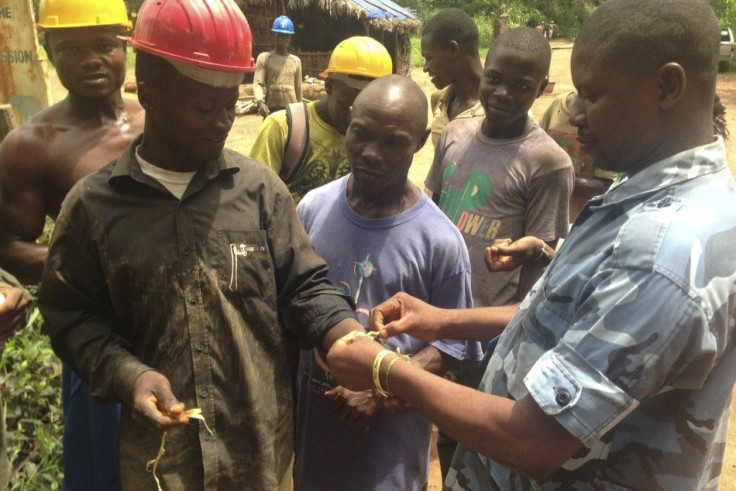Ebola Doom: UK Panics, Holds Crisis Mtng; Expert African Doctor Dies

Authorities in Britain have called for a crisis meeting to tackle possible measures to fight off as well as cope with the spreading deadly Ebola virus. UK pressed the panic button after an infected man managed to fly out from disease-affected Liberia to the major international travel hub of Lagos, Nigeria. Although no British national has been infected yet, the British government views the incurable disease as a "very serious threat."
UK mobilised Cobra, the Government's emergency committee, to discuss as well as put in place signs to look for that will enable people what to do if "the worst happens."
The Ebola virus has claimed over 670 people across Guinea, Liberia and Sierra Leone, so far. The disease causes both internal and external bleeding. It has no cure.
One of the latest fatalities was Dr Sheikh Umar Khan, regarded as a leading expert in the fight against Ebola. He died after contracting the disease while treating patients last week. Khan had said in June that even with a full and complete protective clothing, health workers are still very much at risk to the deadly Ebola virus.
British Foreign Secretary Philip Hammond clarified the disease had not yet "directly" affected the UK. "In terms of the UK, the issue is about the possibility of somebody who has contracted the disease in West Africa getting sick here," he said.
"It is not about the disease spreading in the UK because we have frankly different standards of infection control procedures that would make that most unlikely."
Read: Ebola Virus on the Loose: World Cautioned as Infection Moves; Global Airports on High Alert; Kills Liberian Doctor, Infects American Worker
What UK is doing, according to experts, is laying down a more proactive approach just in case the Ebola virus does land on British soil. The chance of the virus spreading in the UK was "unlikely but not impossible."
"We have been talking to all levels of Government, including the Prime Minister's office, on the West Africa situation," Dr Brian McCloskey, director of global health at Public Health England (PHE), told the Independent.
"When these things start to escalate we work with everybody to ensure they are aware of what needs to happen."
A report ran by the Telegraph showed how the Ebola virus could possibly enter the UK:
- From Freetown, Sierra Leone
- Direct to LHR Tues, Thurs, Fri and Sun on British Airways.
- Daily to LGW via Banjul on Gambia Bird.
- Daily or several times weekly via Monrovia and Paris on Air France, or via Brussels on Brussels Airlines.
- All sorts of other options via Lagos, Accra, Dakar, Nairobi, Dubai, Addis.
- From Monrovia, Liberia
- No direct flights
- Via Freetown on BA to LHR, as above.
- Daily via Casablanca on Royal Air Maroc.
- Daily via Brussels on Brussels Airlines.
- Other options again via Nairobi, Dakar, Accra, Nairobi.
- (Also to JFK three times a week on Delta.)
- From Conakry, Guinea
- No direct flights
- Daily via Paris on Air France
- Daily via Brussels on Brussels Airlines
- Daily via Casablanca on Royal Air Maroc.
- Also all the other African and Gulf options above.
There is only one direct flight to the UK from the west African countries affected by Ebola, and this is serviced by a British Airways flight from Monrovia, Liberia via Freetown, Sierra Leone (Liberia passengers stay on the plane) to London Heathrow.
Professor David Heymann, head of the Centre on Global Health Security at Chatham House, London and the chairman of Public Health England, said international cooperation and greater collaboration are now most critical to ensure the virus stays within the limits of West Africa and not jump into UK or any European country for the matter.
"But at the same time its false to say that border controls can stop infections from spreading - you can be not showing symptoms or even travel when you have symptoms and keep them hidden, as has happened with doctors in the past," he said.





















